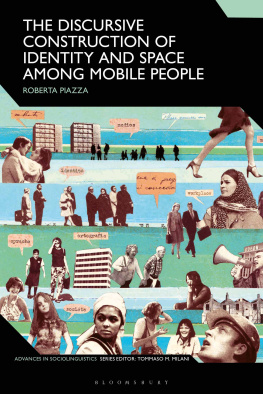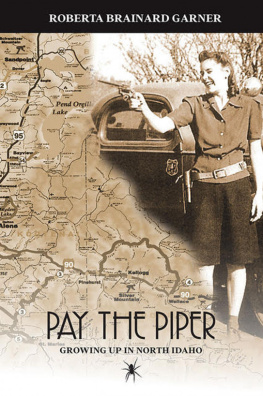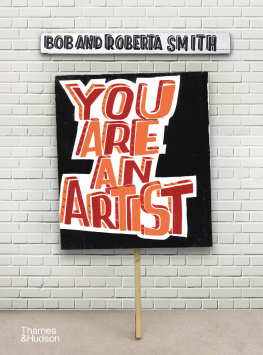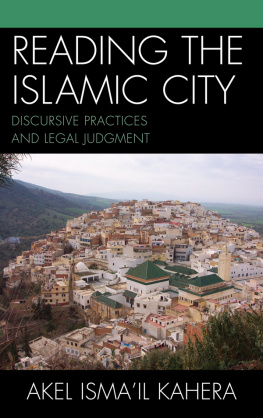Piazza Roberta - The Discursive Construction of Identity and Space among Mobile People
Here you can read online Piazza Roberta - The Discursive Construction of Identity and Space among Mobile People full text of the book (entire story) in english for free. Download pdf and epub, get meaning, cover and reviews about this ebook. year: 2020, publisher: Bloomsbury Publishing Plc, genre: Politics. Description of the work, (preface) as well as reviews are available. Best literature library LitArk.com created for fans of good reading and offers a wide selection of genres:
Romance novel
Science fiction
Adventure
Detective
Science
History
Home and family
Prose
Art
Politics
Computer
Non-fiction
Religion
Business
Children
Humor
Choose a favorite category and find really read worthwhile books. Enjoy immersion in the world of imagination, feel the emotions of the characters or learn something new for yourself, make an fascinating discovery.
- Book:The Discursive Construction of Identity and Space among Mobile People
- Author:
- Publisher:Bloomsbury Publishing Plc
- Genre:
- Year:2020
- Rating:3 / 5
- Favourites:Add to favourites
- Your mark:
- 60
- 1
- 2
- 3
- 4
- 5
The Discursive Construction of Identity and Space among Mobile People: summary, description and annotation
We offer to read an annotation, description, summary or preface (depends on what the author of the book "The Discursive Construction of Identity and Space among Mobile People" wrote himself). If you haven't found the necessary information about the book — write in the comments, we will try to find it.
Piazza Roberta: author's other books
Who wrote The Discursive Construction of Identity and Space among Mobile People? Find out the surname, the name of the author of the book and a list of all author's works by series.
The Discursive Construction of Identity and Space among Mobile People — read online for free the complete book (whole text) full work
Below is the text of the book, divided by pages. System saving the place of the last page read, allows you to conveniently read the book "The Discursive Construction of Identity and Space among Mobile People" online for free, without having to search again every time where you left off. Put a bookmark, and you can go to the page where you finished reading at any time.
Font size:
Interval:
Bookmark:

of Identity and Space
Among Mobile People
This one is for Paul
Advances in Sociolinguistics Series
Series Editor: Tommaso M. Milani
Since the emergence of sociolinguistics as a new field of enquiry in the late 1960s, research into the relationship between language and society has advanced almost beyond recognition. In particular, the past decade has witnessed the considerable influence of theories drawn from outside of sociolinguistics itself. Thus rather than see language as a mere reflection of society, recent work has been increasingly inspired by ideas drawn from social, cultural, and political theory that have emphasised the constitutive role played by language/discourse in all areas of social life. The Advances in Sociolinguistics series seeks to provide a snapshot of the current diversity of the field of sociolinguistics and the blurring of the boundaries between sociolinguistics and other domains of study concerned with the role of language in society.
Titles in the series include:
Becoming a Citizen: Linguistic Trials and Negotiations in the UK, Kamran Khan
Language Ideologies and the Globalization of Standard Spanish, Darren Paffey
Linguistic Landscapes Beyond the Language Classroom, edited by Greg Niedt and Corinne A. Seals
Making Sense of People and Place in Linguistic Landscapes, edited by Amiena Peck, Christopher Stroud and Quentin Williams
Multilingual Encounters in Europes Institutional Spaces, edited by Johann Unger, Micha Krzyanowski and Ruth Wodak
Multilingual Memories: Monuments, Museums and the Linguistic Landscape, edited by Robert Blackwood and John Macalister
Negotiating and Contesting Identities in Linguistic Landscapes, edited by Robert Blackwood, Elizabeth Lanza and Hirut Woldemariam
Remix Multilingualism: Hip-Hop, Ethnography and Performing Marginalized Voice, Quentin Williams
Semiotic Landscapes: Language, Image, Space, Adam Jaworski and Crispin Thurlow
The Languages of Global Hip-Hop, edited by Marina Terkourafi
The Language of Newspapers: Socio-Historical Perspectives, Martin Conboy
The Tyranny of Writing: Ideologies of the Written Word, edited by Constanze Weth and Kasper Juffermans
Voices in the Media: Performing Linguistic Otherness, Galle Planchenault

I am indebted to many people for this project, first and foremost to the people who so generously lent me their voices. I am extremely fortunate to have met them. With some of them I dare say we have developed some friendly relationships. Besides them, the Council Travellers Liaison staff, the staff at the day centre for the Rough Sleepers and the many charities with which I have been working for many years first and foremost FFT (Friends, Family and Travellers), Anthony McCoubry and Kirsty Pattrick at the Mass Observation Project at the Keep, my inspiring friend Peter Morgan, equally inspiring Emma Higham of RAPT and Richard Dufty of RBDdesign, Sheila Peters, Chris Hall, Daniel Fascione, Rachel Chasseaud, Debbie Simmons, Jackie Whitford, Jim Alexander, Sarah Lee, Deidre OHalloran, Frank Cotterell-Snow, Terry Green, Ivy Manning, Michelle Buck, Chris Ellis, Mattia Sonnino, Coco Maartens, Pommy Collingwood, Aenum Machin, Charlie Papworth, the Day Centre clients and many others have all made this project possible. I am grateful to the University of Sussex for believing in my project and funding the multiple events and activities through which, in cooperation with FFT and councils, I tried to raise the publics awareness of the reality of these individuals.
The space each of us occupies is an integral part of our individual selfhood. Who we are is inextricably connected to where we are. The broad concept of place-identity has been widely employed by researchers to investigate this relationship. For Georgalou who explores the relevance of place among Facebook users, place identity refers to the ways in which we understand ourselves by attributing meanings to places (2017: 45). Even in a virtual environment therefore the lack of and exclusion from space is crucial to the construction of selfhood. In line with the significant turn in the 1970s in the approach to space, this is not understood as objective and physical or as location, rather as subjective meaning and the context of social action within which human existence is emplaced (Johnstone 2004, 678).
This volume investigates the relationship between identity and space in order to find out how people who are in an unstable, temporary and threatened spatial condition discursively construct their self in an interaction with an empathetic outsider, while at the same time taking on board the discourses that exist about them in society.
A multifaceted approach is adopted for the analysis of place-identity that focuses on the identities of three mobile groups or sets of individuals whose lives lack well-defined space in the conventional sense. Being marginalized and generally poverty-stricken, the Squatters, Travellers and the Homeless (capitalized in this study in respect of their condition) are in many ways very different from the rest of mainstream society. Their space is also markedly distinct from Lefebvres (1991) abstract space that elite groups represent as homogeneous, integrated, ahistorical and functional to the exercise of power in a capitalist world. Their space is borderline and socially non-integrated and, rather than generating profit, proves the failure of corporativism.
These marginal individuals and groups are super-diverse in terms of their social complexity and lack of conformity to mainstream society. Vertovec, who deliberately declines to offer a precise definition of the concept of super-diversity, refers to it as a summary term:
Super-diversity is proposed as a summary term. Whatever we choose to call it, there is much to be gained by a multidimensional perspective on diversity, both in terms of moving beyond the ethnic group as either the unit of analysis or sole object of study and by appreciating the coalescence of factors which condition peoples lives.
2007: 1026
It is significant that the definition of the concept of diversity by Queensborough Community College makes crucial reference to the elements of acceptance and respect as opposed to practices which result in segregation and exclusion.
The concept of diversity encompasses acceptance and respect. It means understanding that each individual is unique, and recognizing our individual differences. These can be along the dimensions of race,
While diversity engages with a multitude of differences, diversity studies have often centred on the ethnicity-related pluralism and explored a variety of migratory contexts including multilingual practices in business situations (Cogo 2012) or social work environments (Boccagni 2015) and engaged with issues of integration and cultural confluence (Vertovec 2007: 1026) of various groups (Crul 2016) with very rare exceptions of diversity associated with minority groups (Tremlett 2014).
Contrary to such focus of most (super)diversity research, this study investigates a diversity that is integral to the British urban fabric and as such is domestic and internal to it. These peoples existence is blatantly transgressive as much as, if not more than, that of migrants of different ethnicities and provenience and they face enormous challenges in meeting their livelihood needs on a daily and long-term basis. Years of ethnographic work were spent with the protagonists of this volume who are excluded from mainstream society, who do not coalesce with the average citizen and whom many ignore, often deliberately. Exclusion is not simply an economic issue; it is determined by interpersonal behaviour. Naegels and Blomme (2010 in van de Mieroop 2011: 566) argue that people have their personal GPS system, which enables them to avoid problematic individuals such as the poor and needy like the three marginal groups examined in this study. To a degree, therefore, this volume is a tribute to these invisible people and an attempt to give them a voice.
Next pageFont size:
Interval:
Bookmark:
Similar books «The Discursive Construction of Identity and Space among Mobile People»
Look at similar books to The Discursive Construction of Identity and Space among Mobile People. We have selected literature similar in name and meaning in the hope of providing readers with more options to find new, interesting, not yet read works.
Discussion, reviews of the book The Discursive Construction of Identity and Space among Mobile People and just readers' own opinions. Leave your comments, write what you think about the work, its meaning or the main characters. Specify what exactly you liked and what you didn't like, and why you think so.









